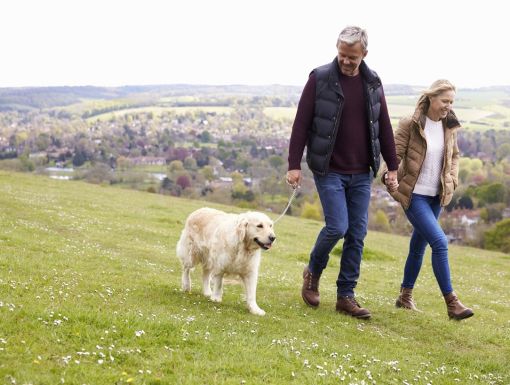
How Do I Know If I Am Having a Heart Attack?
Do you feel nauseous and have heartburn? Could it be indigestion from something you ate? Is your heart racing and your chest is tight? Is it anxiety or are you having a heart attack? A heart attack is a medical emergency that requires immediate attention. According to the Centers for Disease Control and Prevention, someone has a heart attack every 40 seconds and approximately 805,000 suffer from a heart attack annually in the United States. It is important to recognize the signs and symptoms of a heart attack so that you can seek prompt treatment. Early treatment can prevent damage to your heart and improve your chances of survival.
What are the common signs and symptoms of a heart attack?
Here are the top six common signs and symptoms a heart attack is occurring:
- Chest pain: Chest pain or discomfort is the most common symptom of a heart attack. The pain may feel like a pressure, fullness, squeezing, or burning sensation in the center of the chest. The pain may last for a few minutes or come and go.
- Upper body discomfort: You may also feel pain, discomfort or pressure in other areas of your upper body, such as your arms, neck, jaw, back or stomach.
- Shortness of breath: You may experience shortness of breath, even when you are at rest. This may be accompanied by sweating, dizziness or lightheadedness.
- Nausea and vomiting: Nausea and vomiting are common symptoms of a heart attack, especially in women.
- Fatigue: You may feel extremely tired or weak, even if you have not been physically active.
- Rapid or irregular heartbeat: A rapid or irregular heartbeat may be a sign of a heart attack, especially if it is accompanied by chest pain or discomfort.
If you are experiencing any of these symptoms, it is important to seek medical attention immediately. Even if you are not sure whether you are having a heart attack, it is better to err on the side of caution and seek help.
It is important to know that heart attacks can present differently in different people. Some people may only experience mild symptoms, while others may experience more severe symptoms. For example, some people may experience only mild chest pain, while others may experience severe, crushing chest pain. Women are also more likely to experience atypical symptoms of a heart attack (symptoms unrelated to chest pain), such as neck, jaw, shoulder, upper back or upper belly (abdominal) discomfort, shortness of breath, pain in one or both arms, nausea or vomiting, sweating, lightheadedness or dizziness, unusual fatigue, or heartburn (indigestion).
Silent heart attack
A silent heart attack may have few, if any, symptoms or has symptoms not recognized as a heart attack. This type of heart attack might not cause chest pain or shortness of breath, which are typically associated with a heart attack. People who have a silent heart attack might think they’ve had heartburn, the flu or a strained chest muscle. A silent heart attack, like any heart attack, involves blockage of blood flow to the heart and damage to the heart muscle.
Sudden cardiac arrest
If you have suffered a heart attack before, you are at a higher risk of suffering sudden cardiac arrest. Unlike a heart attack when there is a blockage stopping the blood from flowing to the heart, sudden cardiac arrest occurs without warning. Sudden cardiac arrest occurs when there is an electrical malfunction in the heart causing an irregular heartbeat. When this occurs, death can occur within minutes if treatment is not received immediately.
Sudden cardiac arrest is the leading cause of death in the United States for adults over the age of 40 with nearly 850,000 people considered high risk. This condition is very different from a heart attack, as it leads to the immediate loss of heart function, breathing and consciousness. It’s estimated that about 95% of sudden cardiac arrest victims die before ever reaching the hospital. Here are the most common signs and symptoms of sudden cardiac arrest:
- Fainting or loss of consciousness is the most common sign of sudden cardiac arrest. This happens when the heart stops beating and can occur after or during exercise.
- You may experience a racing heartbeat, dizziness or feel light-headed before you faint.
- The hour before SCA occurs, you may have chest pain, nausea or shortness of breath.
What should you do?
If you suspect that you or someone else is having a heart attack, call emergency medical services immediately. Do not drive yourself to the hospital or wait for someone to drive you. After dialing 911, if the person has lost consciousness, begin to administer CPR and have another member search for an AED. Emergency medical services can provide life-saving treatment on the way to the hospital.
A heart attack is a serious medical emergency that requires prompt treatment. Knowing the signs and symptoms of a heart attack can help you to seek help early and improve your chances of survival. If you are experiencing any symptoms of a heart attack, call emergency medical services immediately. Remember, early treatment is key to preventing damage to your heart and improving your chances of survival.



